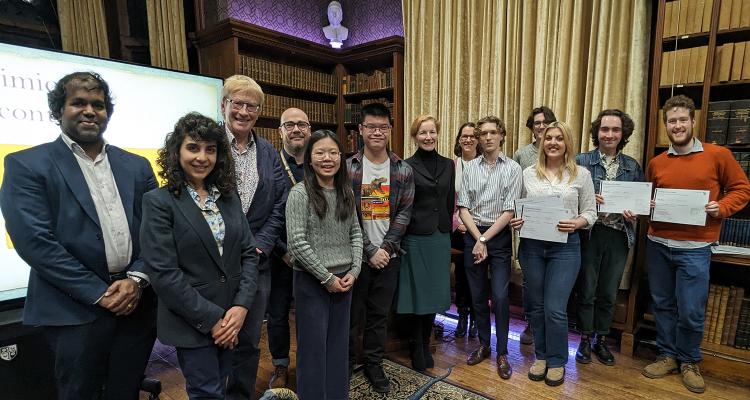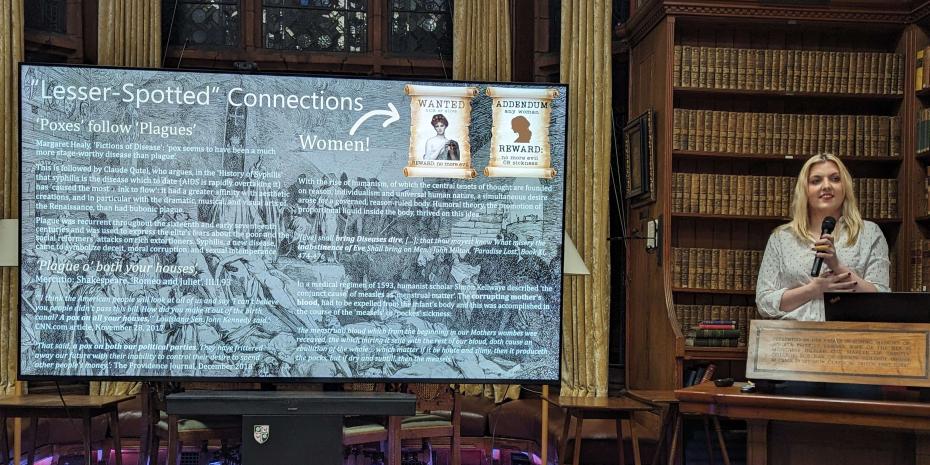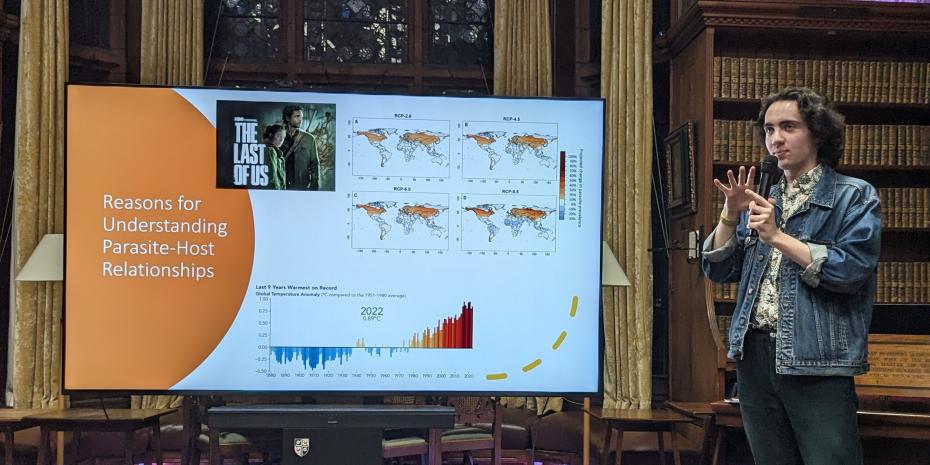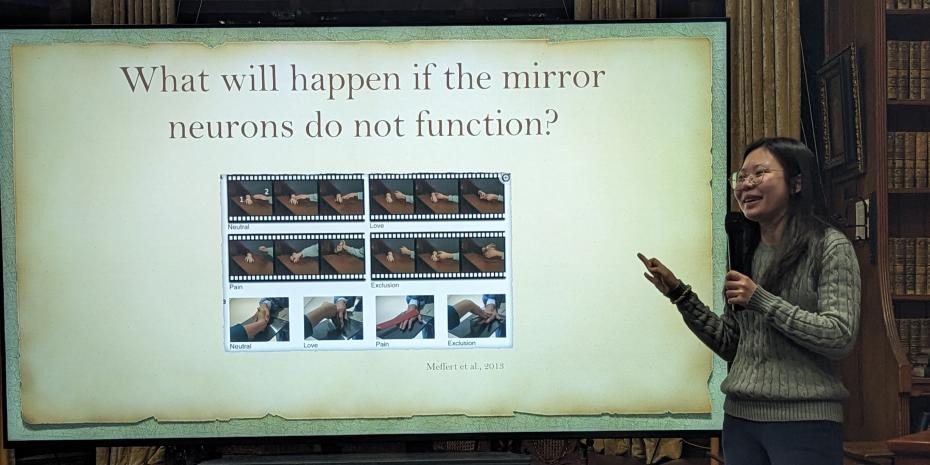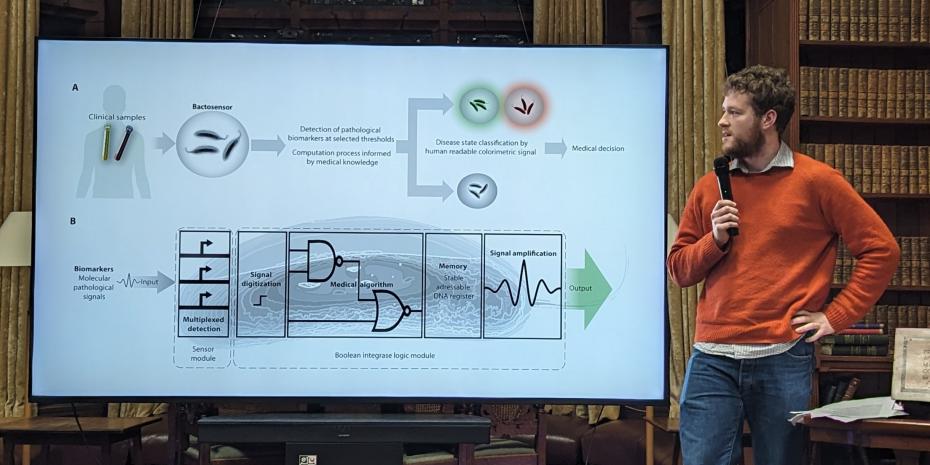The Hammond Science Communication Prize was held in the Stanley Library on the 26 February 2024. In line with this year’s theme of ‘connection’, students unravelled an aspect of connection in science that captivated them, articulating its scientific significance, and illustrating how its presence or absence shapes our world.
The competition received seven excellent abstracts, all of which were selected to present for eight minutes to a packed audience and esteemed judges.
The judges for this year’s awards were Dr Phil Hammond (1981 Clinical Medicine, Sponsor), Dr Katie Burton (Medicine), Dr Stuart Davies (Deputy Senior Tutor), Dr Soudabeh Imanikia (Biological Sciences), Dr Sabesan Sithamparanathan (Engineering), and Dr Helen Van Noorden (Arts).
The outstanding presentations explored, amongst other topics, the neuronal control of psychopathy, the commercialisation of genomic data, parasitism by language, and our connection to dinosaurs.

